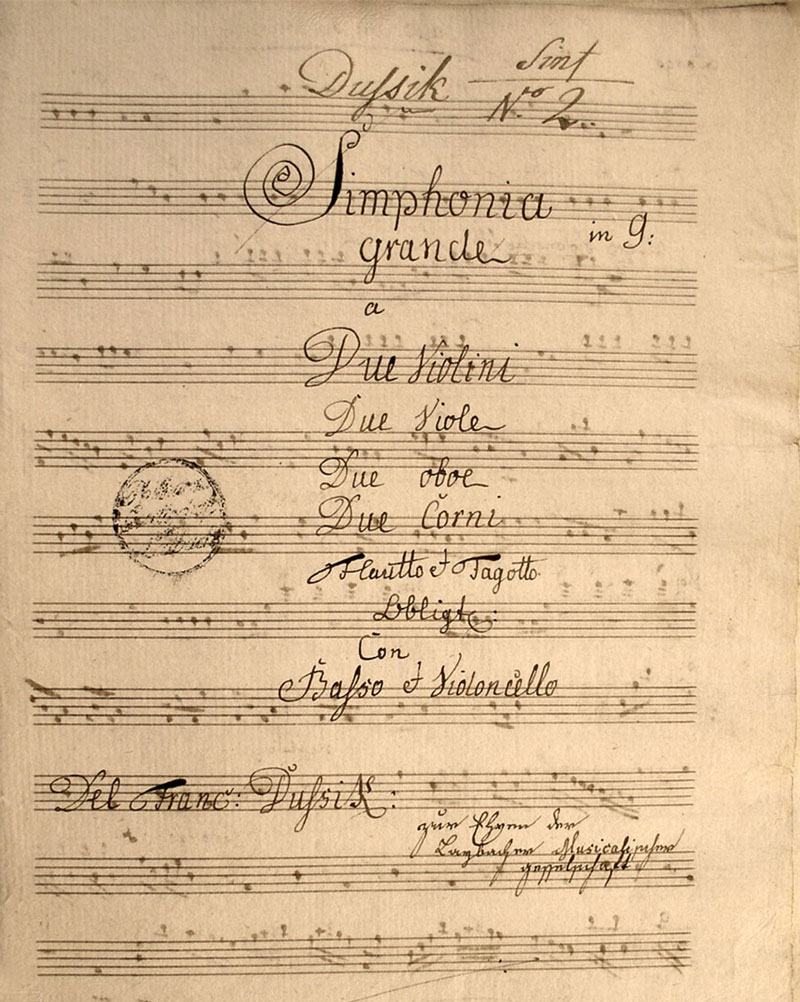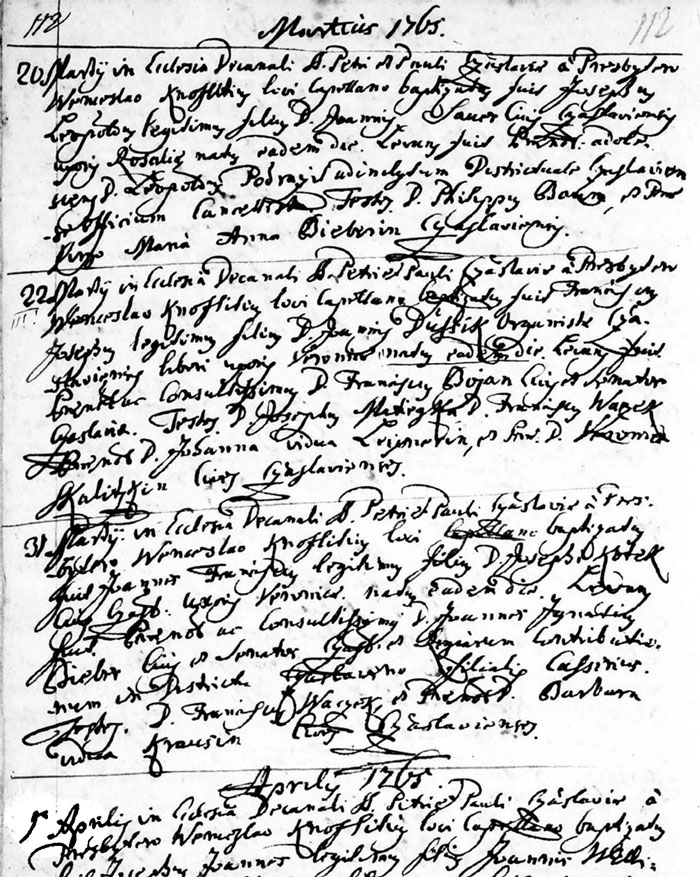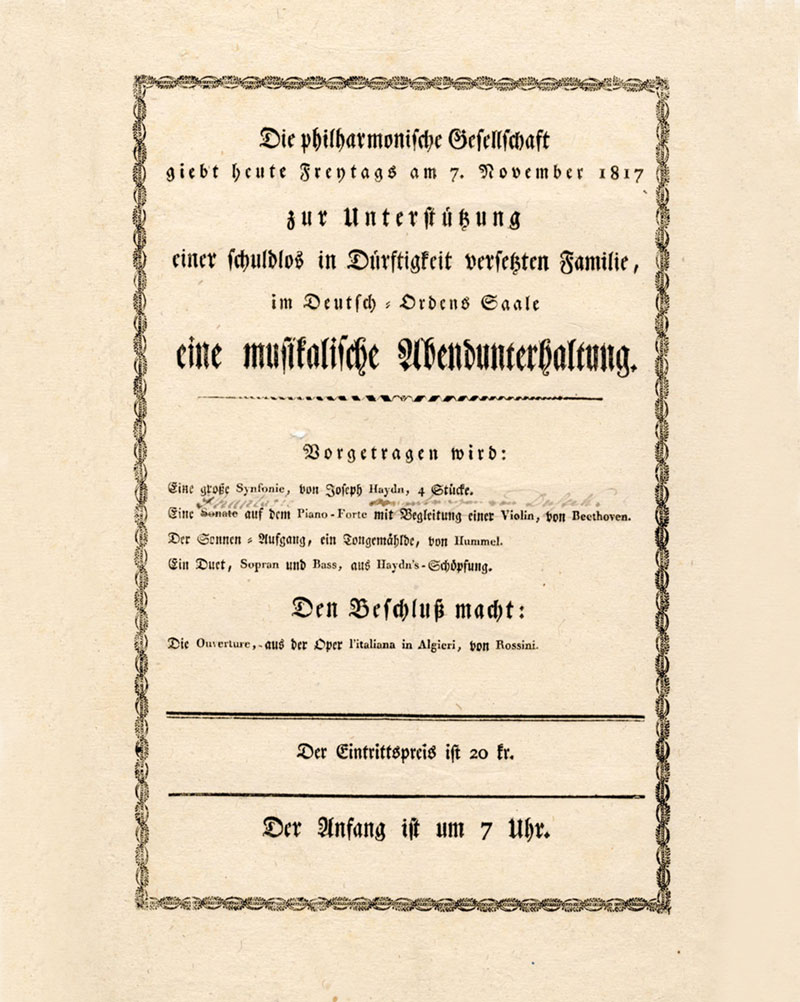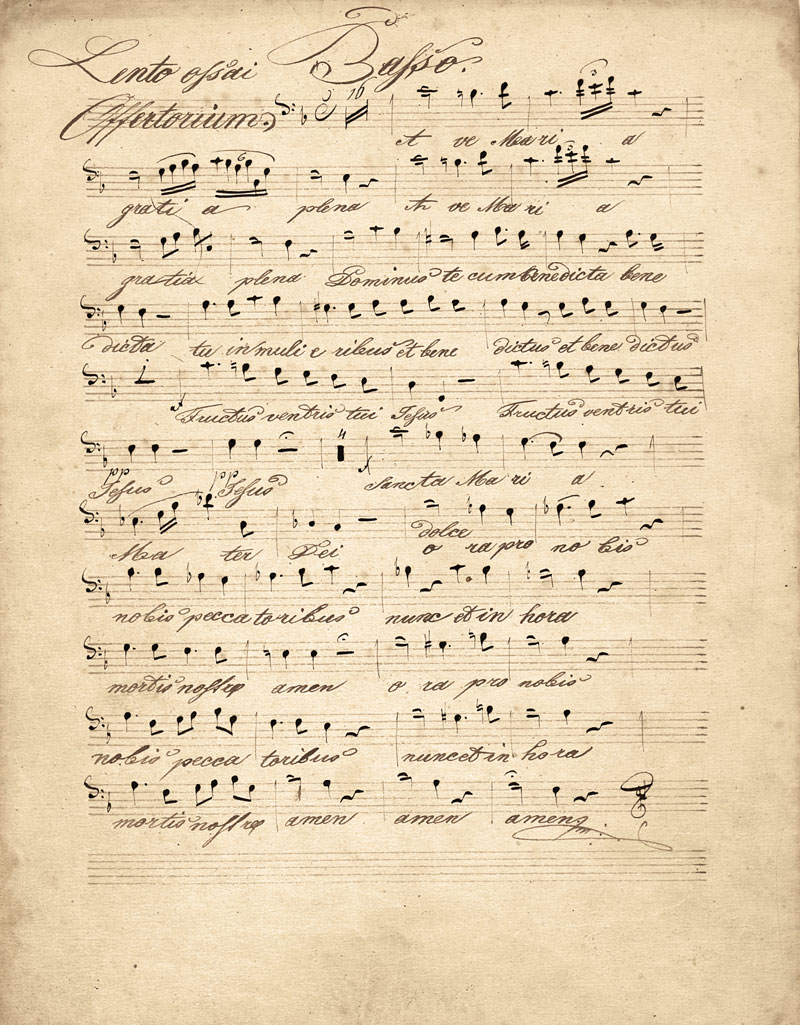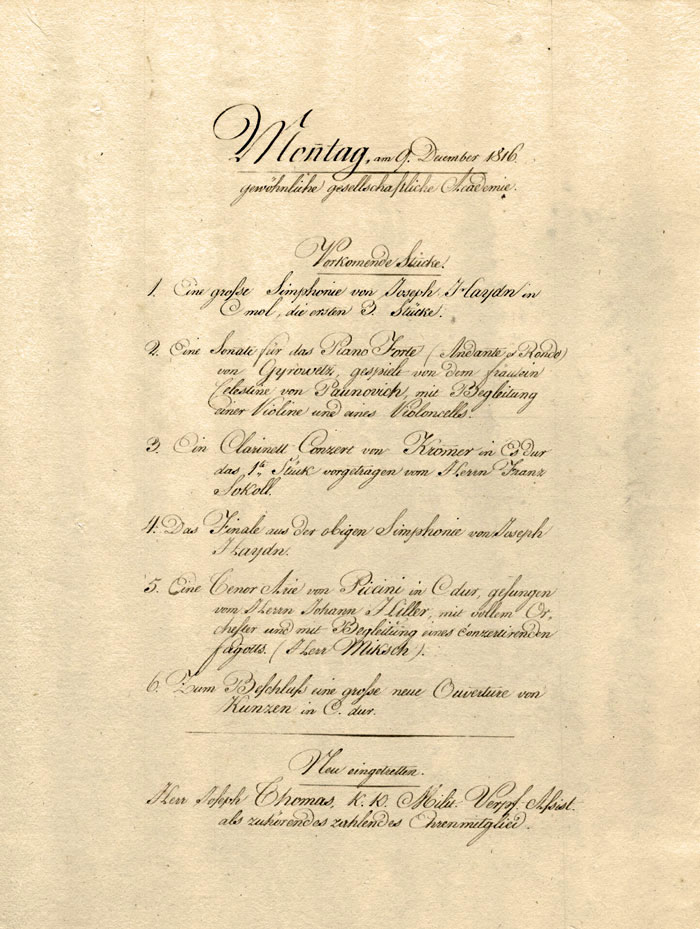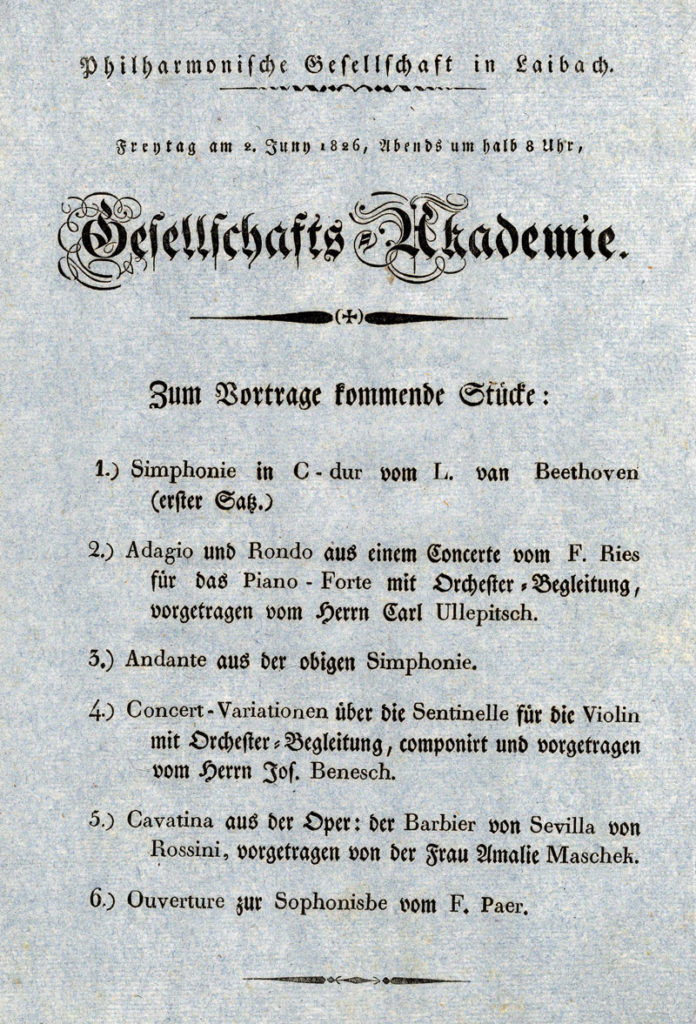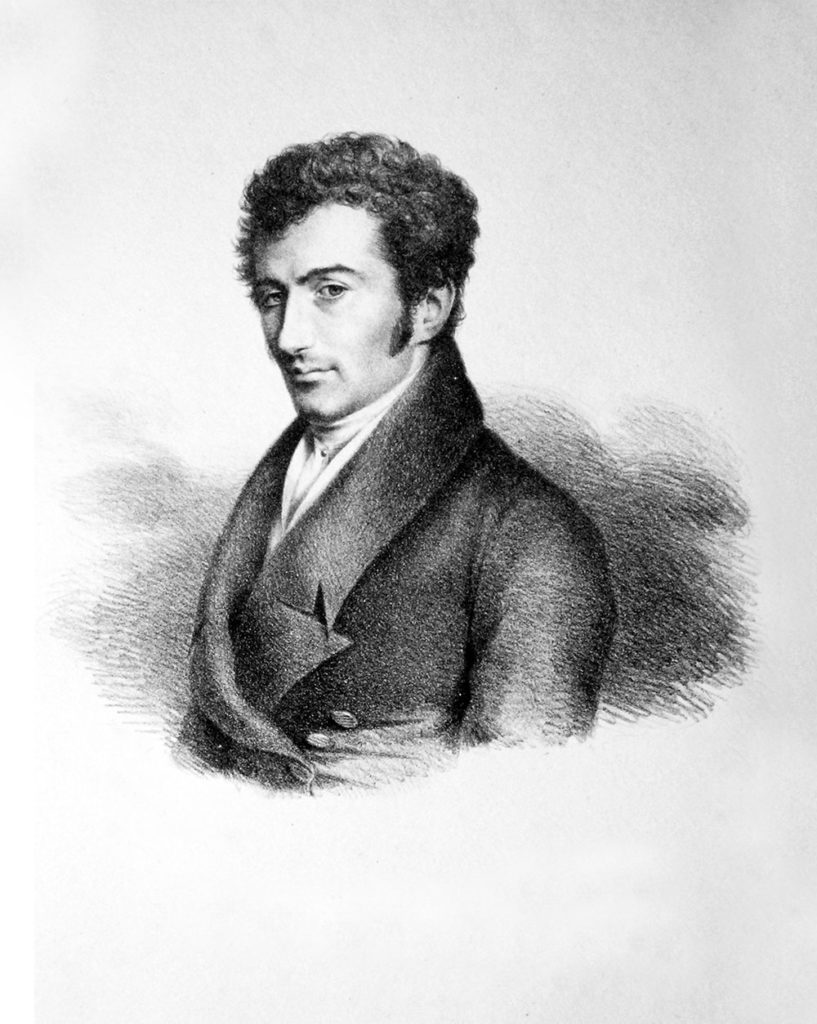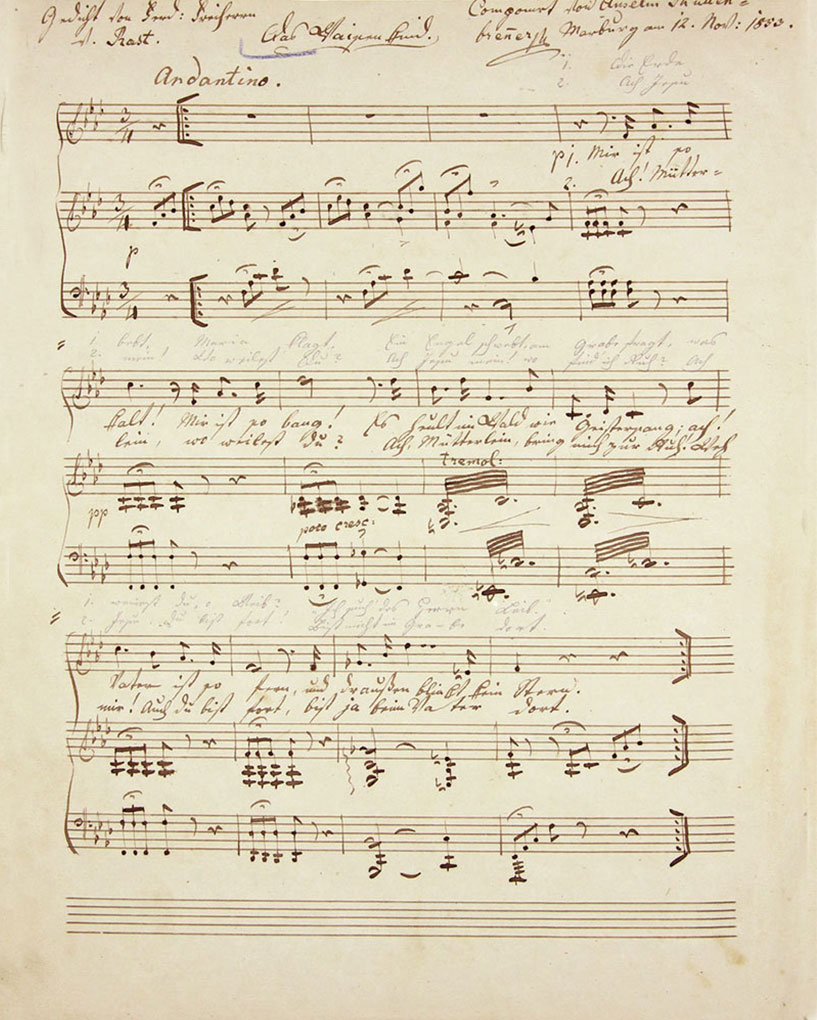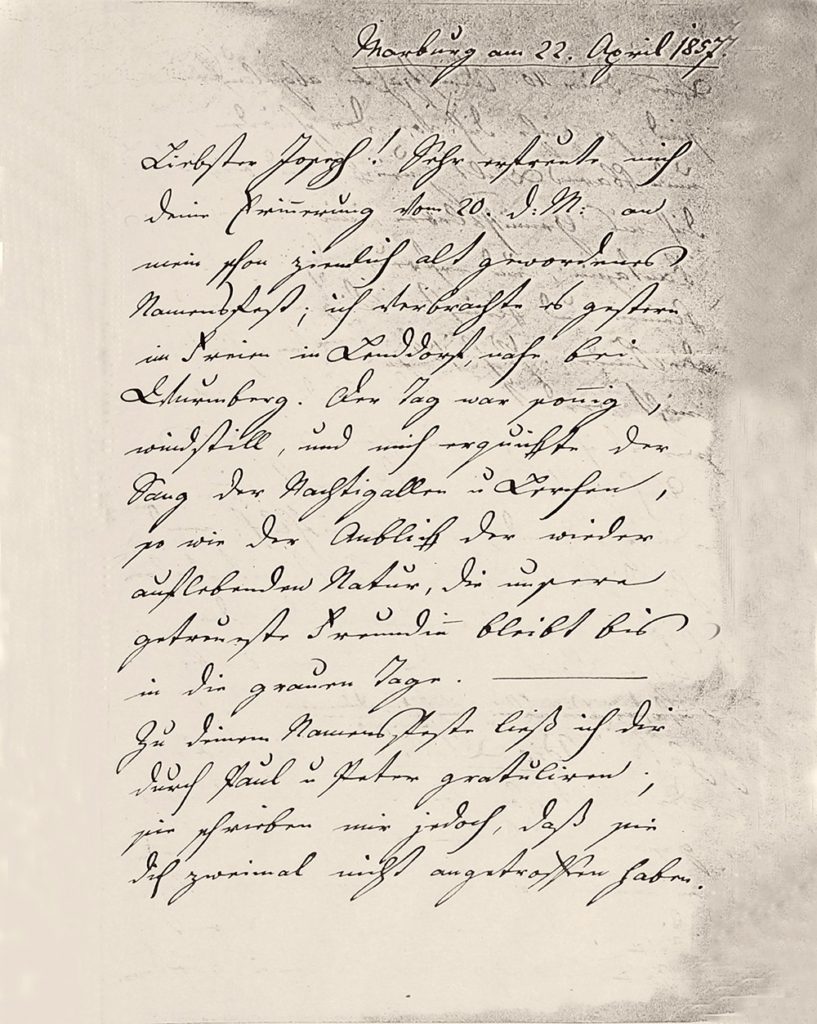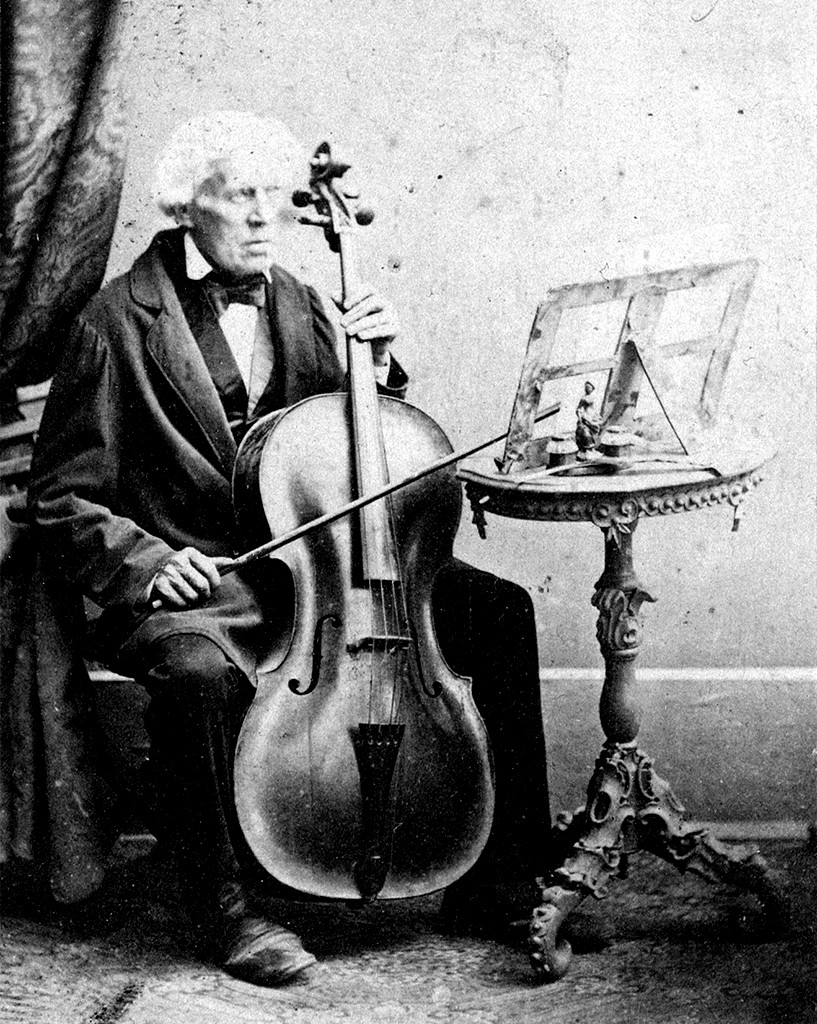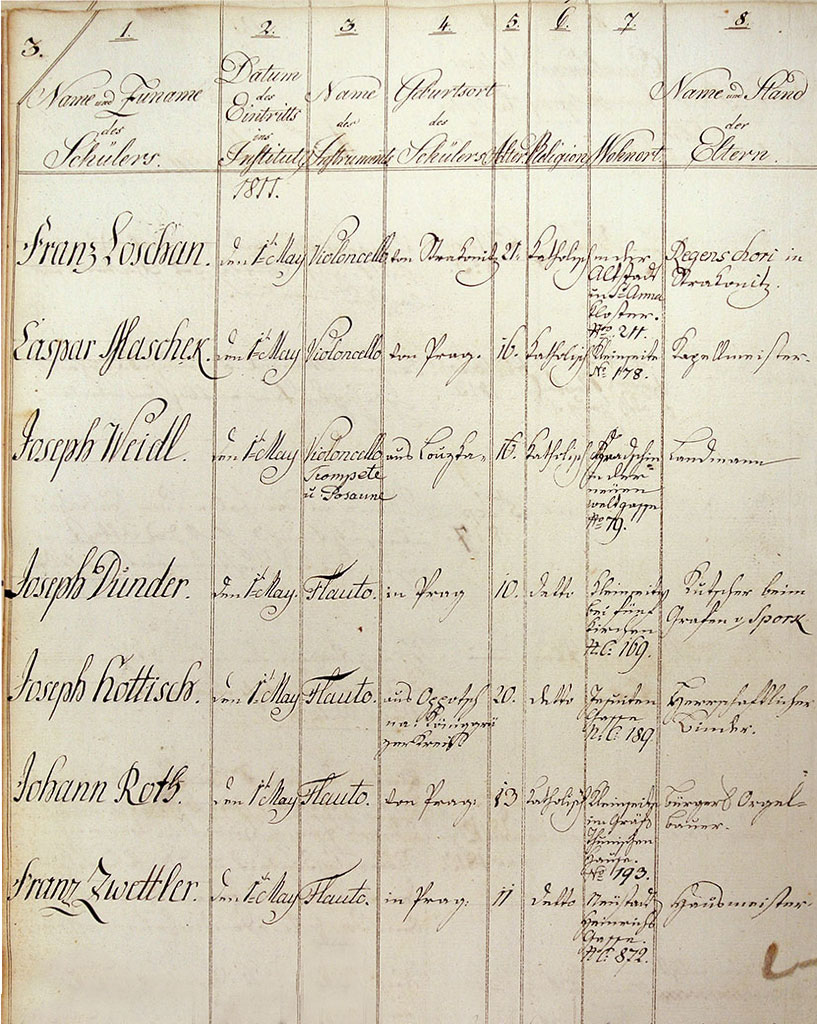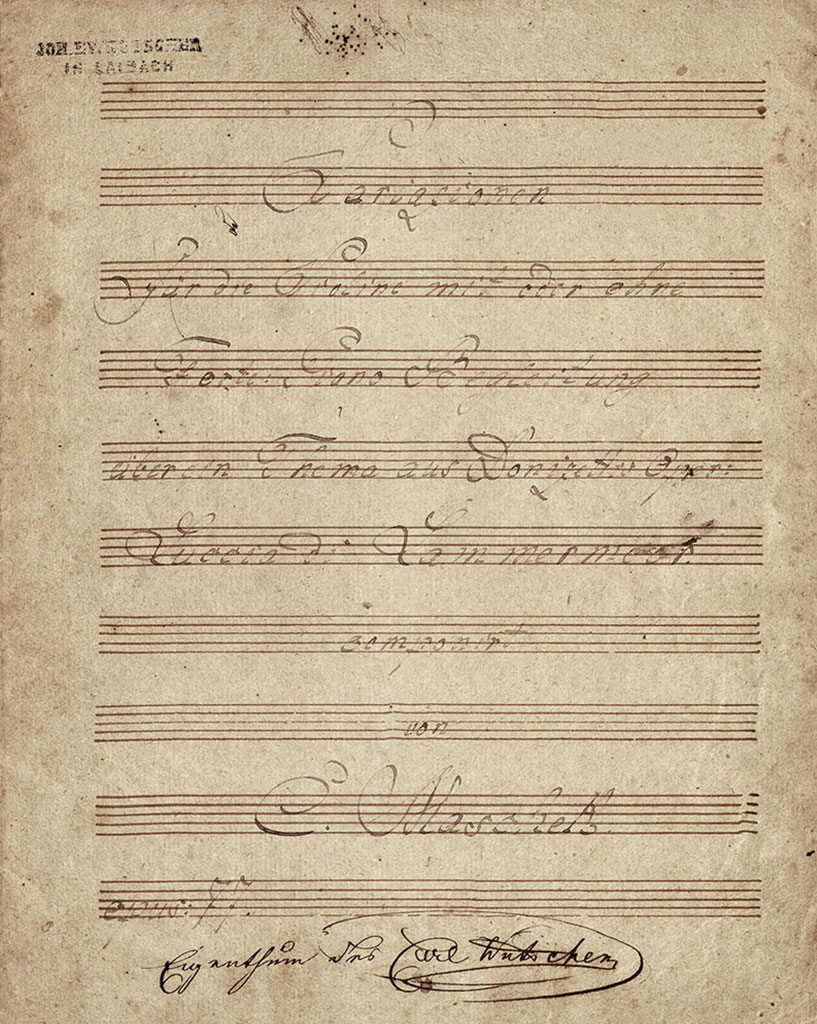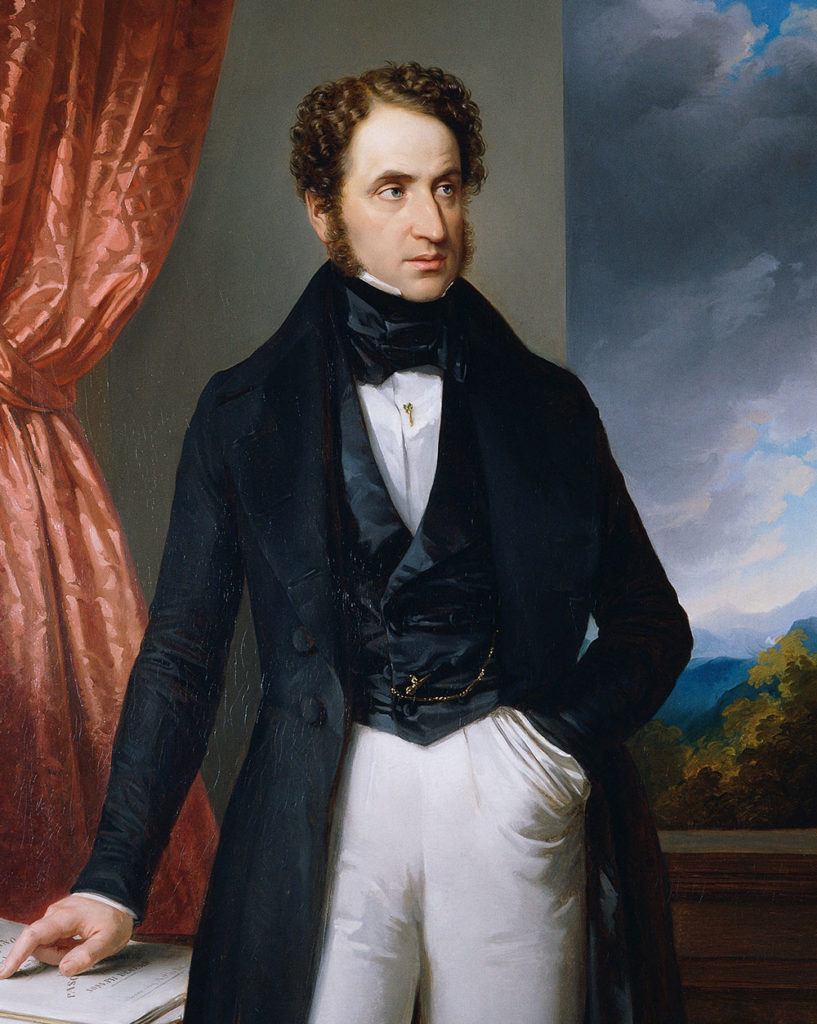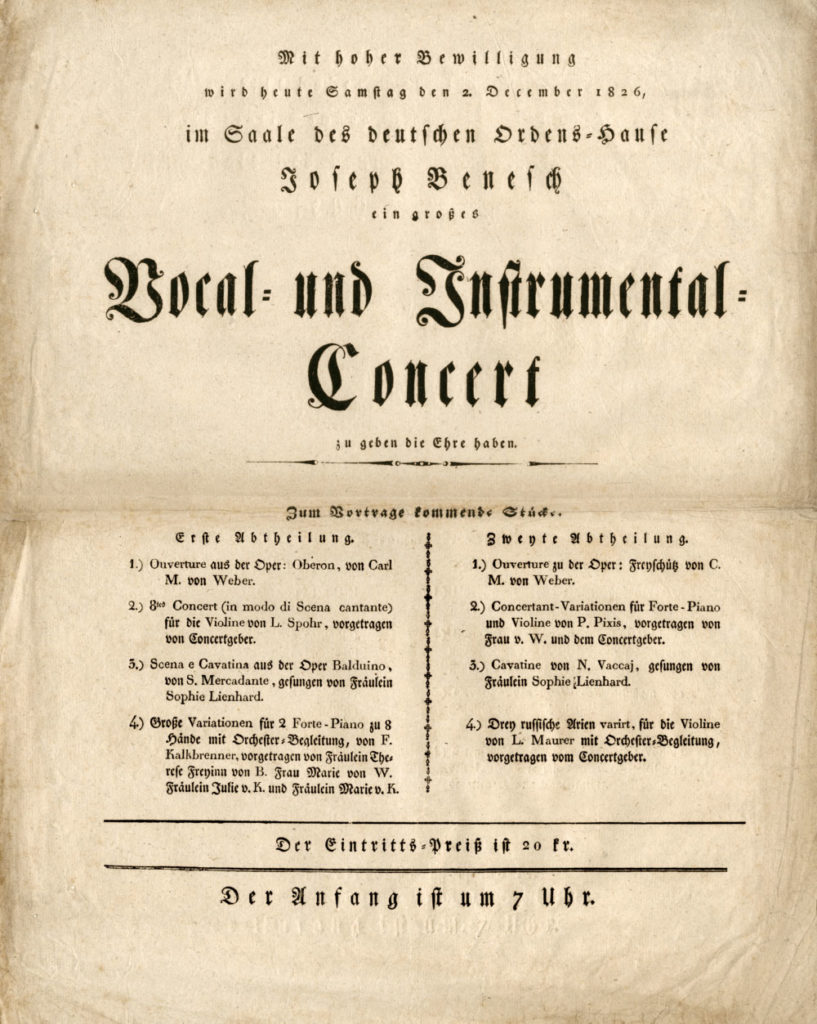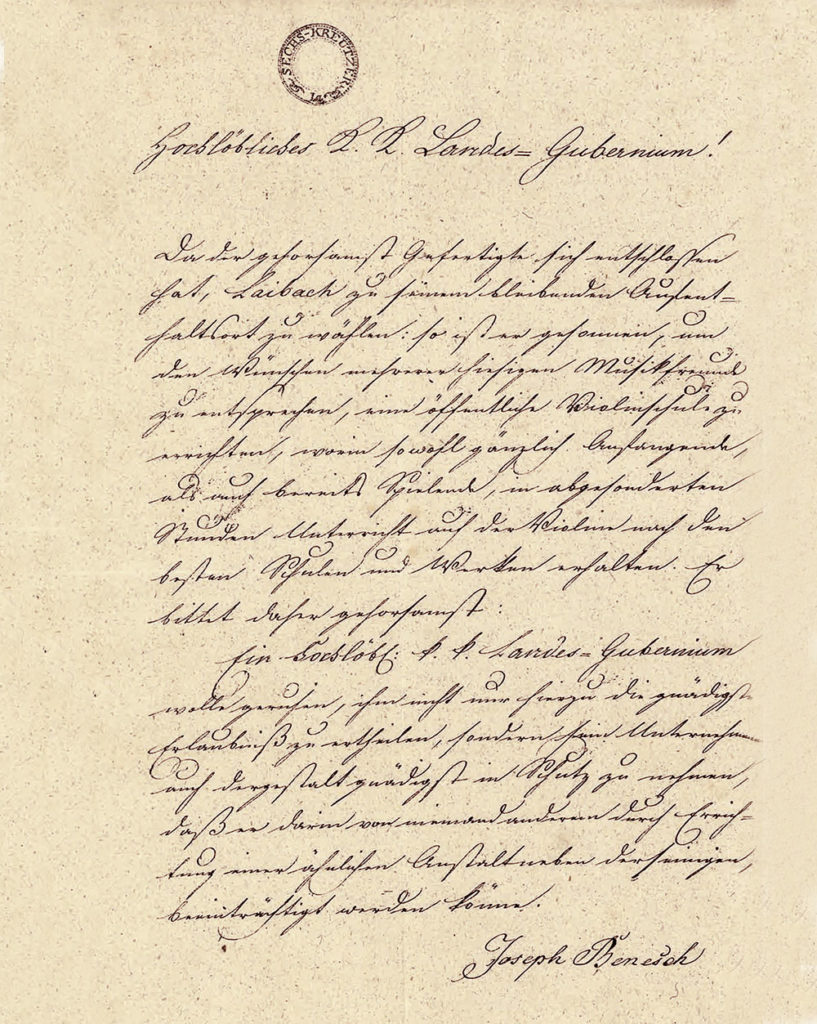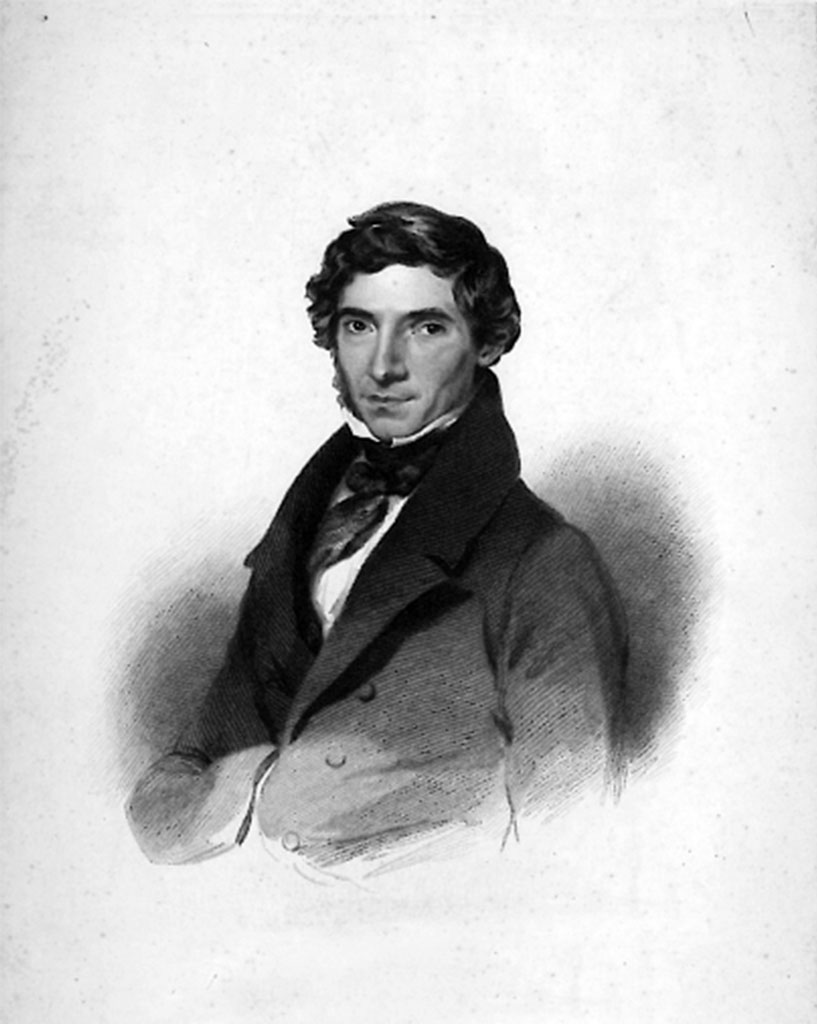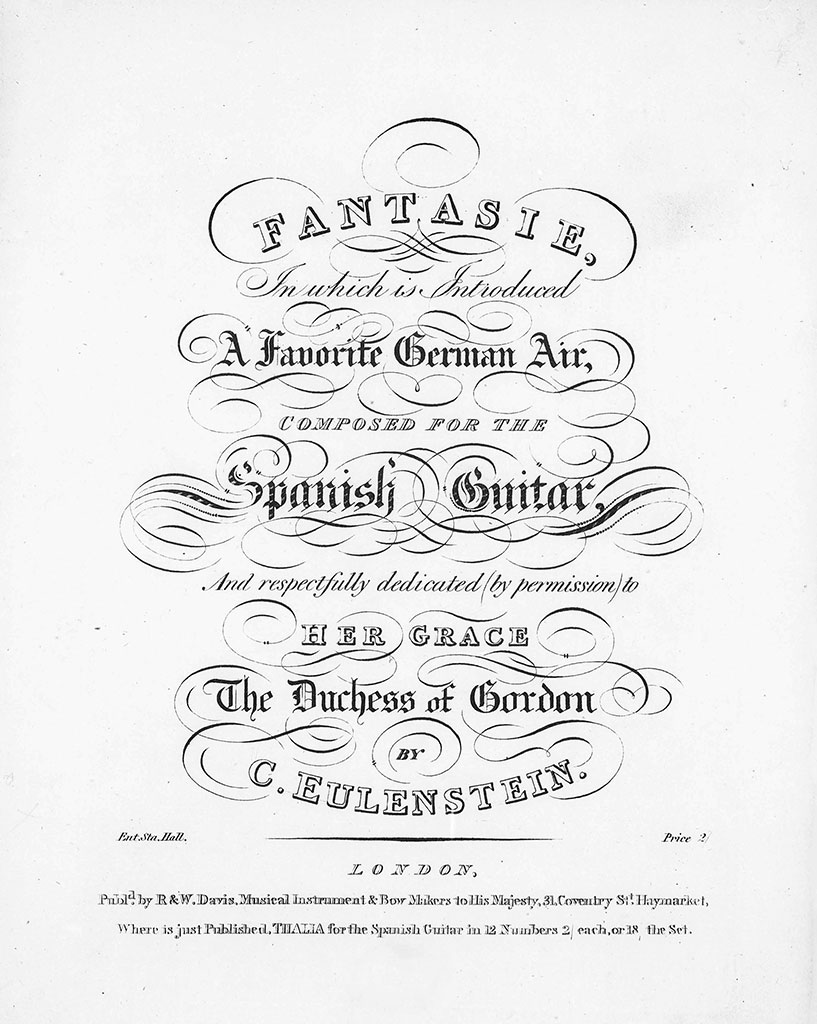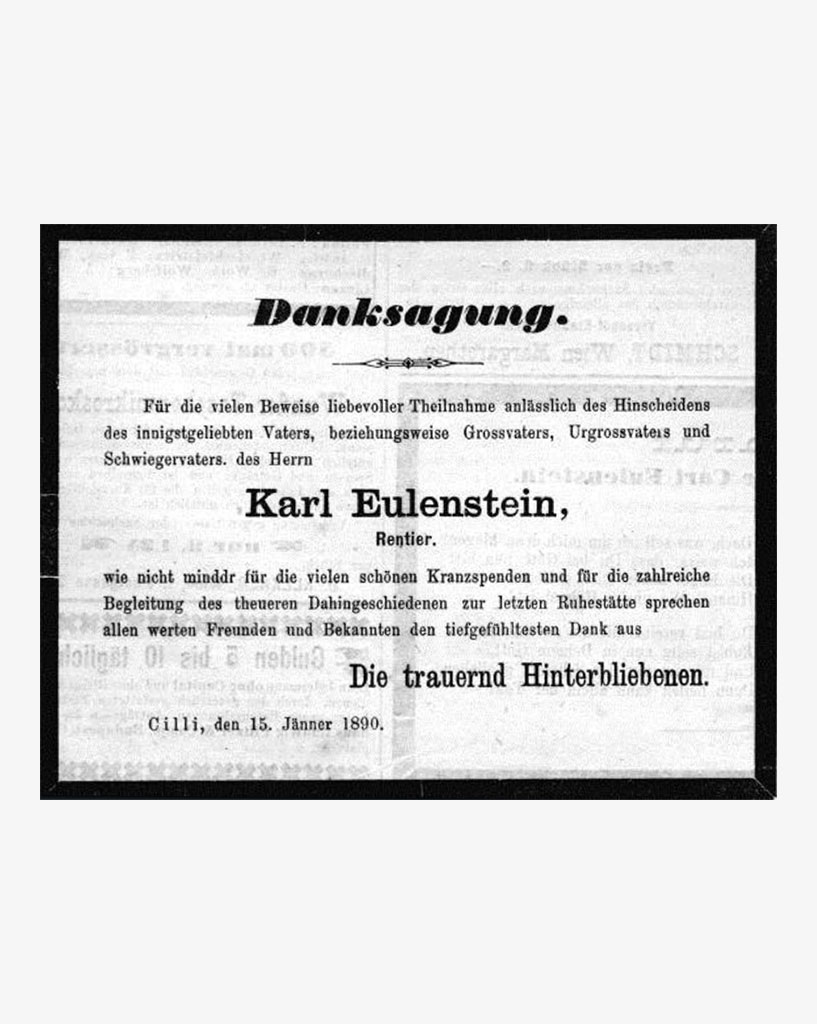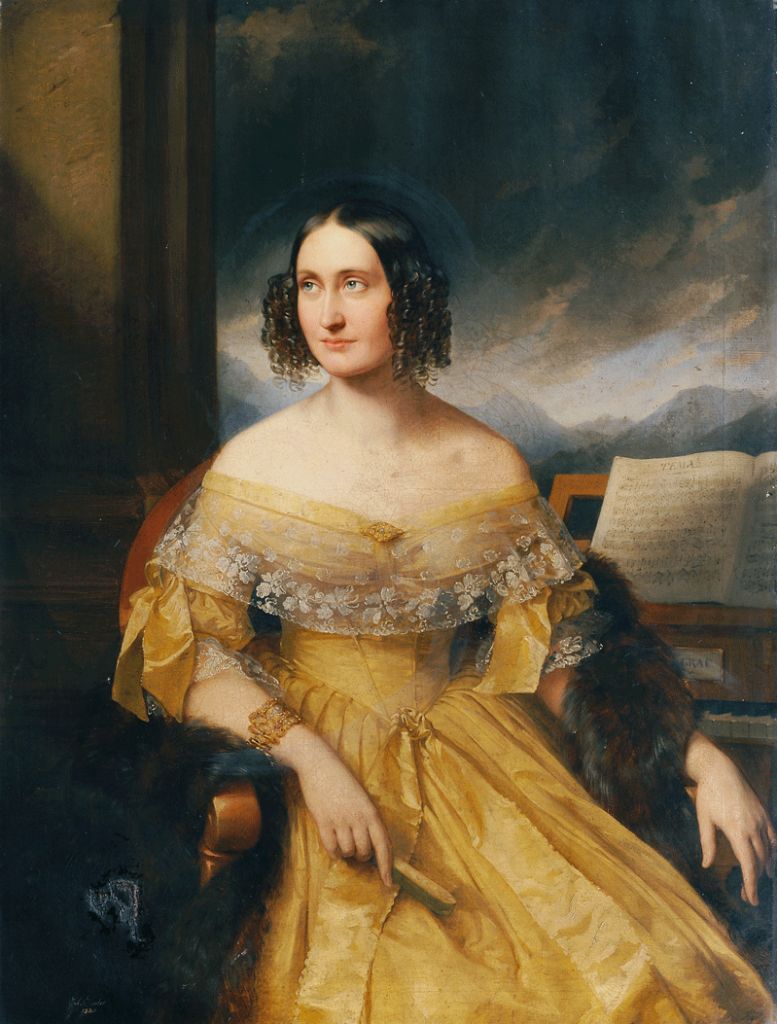VIRTUAL EXHIBITION
Join us on a journey of discovery, explore the musical heritage and experience the interconnected cultural roots of Europe.
Portraits
VI. THE IMMIGRANT MUSICIANS
During this golden period of music and migration, many musicians crossed paths in the Slovenian Lands. They brought their musical knowledge and experience, music scores, the latest trends in performance styles, and personal relationships with renowned musicians and patrons to our land, thus writing an important part of Slovenian music history and bringing forth a new generation of artists. Sometimes matters of the heart and resulting marriages convinced musicians to start a new chapter in their lives and settle in Slovenian territory, which was often still quite dormant musically.
Violinist, Orchestral director and Composer
FRANZ DUSSEK
Franz Benedikt Dussek (František Dusík; 1765–1817) was born in Čáslav, Bohemia. He received music lessons from his father Jan Dussek, and later at the Cistercian monastery in Žd’ár nad Sázavou and the Prague Emmaus Monastery, where he was taught by Fr. Augustin Šenkýř (Schenkirtz). Later he went to Italy, where he performed as a violinist, cellist, and pianist in theaters in Mortara, Venice, and Milan. In 1790 he joined the Bishop’s Chapel in Ljubljana, where he spent the next ten years as violinist, organist, and music director. Shortly after the foundation of the Philharmonic Society he became a member and one of its leading musical figures. He wrote five symphonies and several serenades for the society. Because of his collaboration with Georg Schantroch’s theatrical company (as a rehearsal pianist, singer, and composer), Dussek lost his position at Ljubljana Cathedral. After that he worked as a music director and “piano master” in Gorizia, where he worked as a private piano teacher, music director, pianist, and cellist in the following years. He also performed in various northern Italian theaters. According to some sources, after 1806 he performed as military bandmaster of the infantry regiments in Venice and of the Davidovich 24th Infantry Regiment. A copy of the overture to Dussek’s opera Il Bruto ossia Roma that was intentionally made in Ljubljana, may be evidence of his probable return to Carniola in 1817. On the only surviving concert program of the Philharmonic Society of Ljubljana from November of that year, there is a handwritten note that Dussek performed a piano fantasia. After this date, we lose track of him. Dussek wrote a number of farces, serious and comic operas, an oratorio, masses, symphonies and overtures, piano and violin concertos, and several chamber works.
Kapellmeister and Composer
FERDINAND SCHWERDT
Leopold Ferdinand Schwerdt (1773–1854) probably came to Ljubljana after 1800. In 1806 and 1807 he toured with traveling theater companies as a cellist, singer, and actor. He wrote music for Josef Alois Gleich’s play Der Mohr von Semegonda and Georg Friedrich Treitschke’s comedy Die wandernden Komödianten. In 1807 he became a cathedral chapel singer and a teacher at the cathedral’s music school. From 1812 to 1820 he was the music director of St. James’ Church in Ljubljana, where the music school was founded in 1812. During this time he also conducted (e.g., Haydn’s oratorio The Seasons in 1818). In 1826 he was still in Ljubljana, earning his living by teaching and selling his own compositions. In the following years he worked in various parts of Slovenia and Croatia (in 1828 at Kostanjevica Monastery near Nova Gorica, Slovenia; in 1836 in Karlovac, Croatia; in 1837 in Novo Mesto, Slovenia). In 1848 he played in the Ljubljana National Guard band and later at the Franciscan Church. He wrote some orchestral works, dance music (Deutsche Tänze), and many sacred vocal-instrumental works, most of which are masses.
Teacher and Composer
JOSEPH MIKSCH
Joseph Miksch (Josip Mikš; 1778–1866) was born in Nové Město in Moravia. He first worked as a tutor for Baron von Hallerstein and then as an assistant in Langenau for four years. In 1806 he moved to Kranj, where he taught at the main school for the next eight years. After the French occupation, he joined the French Lyceum in 1811 and taught Italian and mathematics. In 1814 he accepted a position at the Normal School in Ljubljana, where he taught penmanship and music to prospective teachers. He was one of the applicants for a teaching position at the newly established public music school, but withdrew his application. For a short time he taught at the Philharmonic Society School in Ljubljana, where he occasionally participated and was a member of the Philharmonic Society Orchestra and the Estates Theater. He performed as a singer, music director, and bassoonist. In 1817 he was appointed director of the Normal School in Koper and became regional school inspector for the schools of the Littoral (except those in Gorizia) in Trieste. He spent his retirement in Ljubljana, where he participated in performances of secular and church music. He was an honorary member of the Philharmonic Society. He wrote several German and Latin masses, graduals and offertories, Tantum ergo, Te deum, and others.
Singer
AMALIE MASCHEK
Amalie Mašek (1792–1836) was born in Valtice, Moravia. She probably made her debut at the Leopoldstadt Theater in Vienna around 1812 and remained there until 1815. She then appeared at the Theater in Klagenfurt (1816–1818), and in 1819 she moved from Bratislava to Graz to become an opera singer at the Estates Theater. It is not clear whether she met Gašpar Mašek in Bratislava or Graz, but they married on 6 May in 1820 in Graz. After moving to Ljubljana, she performed as an opera singer at the Estates Theater and was also active as a teacher and a performer on the Philharmonic Society stage. She and her husband founded two amateur opera companies in Ljubljana, with which they gave musical performances from 1826 to 1827 and 1834 to 1835. However, due to financial difficulties, the two companies were not successful. She died one year later due tuberculosis. Their son Kamilo Mašek became an important Slovenian musician.
Pianist and Composer
ANSELM HÜTTENBRENNER
Anselm Hüttenbrenner (1794–1868) was born in Graz, studied law and, as a pupil of Antonio Salieri in Vienna, made friends with a number of important musical figures. In 1821 he settled in Graz and soon became director of the Styrian Music Society (Musikverein für Steiermark). After his wife’s death in 1848, he withdrew completely from public life for a time. He did not start composing again until 1852, when he was staying in Radgona, where he had been invited by friends. In the autumn of the same year, he moved to Maribor as a guest of the prominent and wealthy Baron Ferdinand von Rast and lived there intermittently until the autumn of 1858. He spent his time outdoors, devoted himself to teaching piano and, above all, to composing. The musical oeuvre produced during this period is unusually extensive. Hüttenbrenner initially composed mainly Lieder and set to music in particular the poems of Baron Rast, better known as a poet under the pseudonym Hilarius. This was followed by a number of piano pieces, including works for piano four-hands, which the composer used primarily for teaching purposes. Among his most talented pupils, he specifically mentions Emma von Rast, the daughter of his host, and Erna Gasteiger, the daughter of a prominent citizen of Maribor. At the end of 1857 Hüttenbrenner devoted himself to composing orchestral overtures for theatrical performances in the Graz theatre, and during the Maribor period he also composed several works for church use, among which his Missa solemnis in F minor is prominent. A series of compositions with programmatic titles testifies to Hüttenbrenner’s personal affection for the city and its surroundings. In the pieces “Marburg” (Maribor), “Mein Steierland” (My Styria), “St. Urban” (St. Urban), and “Erinnerung an Kranichsfeld” (Remembrance of Rače) this connection is already indicated by the location references. Similar thematic titles can also be found in the piano pieces, such as “Erinnerung an die Besteigung des Pacher” (Remembrance of the Ascent of Pohorje), “Empfindung an der St. Joseph’s Quelle” (Feelings at St. Joseph’s Spring), “Die Draumühle” (The Drava Mill) and, last but not least, “Abschied von Marburg” (Farewell to Maribor).
Kapellmeister and Composer
CASPAR MASCHEK
Gašpar Mašek (1794–1873) was born in Prague. He received his music education from his father, the well-known composer Vincenc Mašek. He studied violoncello at the Prague Conservatory between 1811 and 1815 with its first class of students. During his studies he was military bandmaster and assistant to his father at St. Nicholas’ Church in Prague. In 1819 he was music director of the Estates Theater in Bratislava, then in Graz, where he married the singer Amalie Horný (1792–1836). A year later he moved to Ljubljana and became music director at the Estates Theater and the Philharmonic Society, where he also founded a singing school. At the school he founded a choir and conducted numerous premieres of vocal-instrumental works in Ljubljana. During the 1821 Congress of Laibach, he directed the Italian and German opera groups. Later, he incorporated motifs from Rossini’s arias performed during the congress into German dances (Deutsche) and wrote several arrangements of Italian opera melodies for various instruments. He and his wife founded two amateur opera companies in Ljubljana, with which they gave musical performances from 1826 to 1827 and 1834 to 1835. However, due to financial difficulties, the two companies were not successful. Mašek worked as a music teacher at the public music school from 1822 to 1854. He wrote works for the stage (operas and an operetta), several cantatas, solo songs, church works, works for piano and organ, and chamber music works.
Pianist and Composer
PAUL MICHELI
Paul Micheli (Paul Michl; 1795–?) was born in Jedlová, Bohemia, where he received his first music training. He then spent twelve years in Milan. He continued his studies in Vienna with Ignaz Xaver Ritter von Seyfried (1776–1841) and Joseph Dreschler (1782–1852). He came to Ljubljana before 1830 and worked as the military bandmaster of the 17th Infantry Regiment between 1833 and 1849. He led the military band in several Philharmonic Society concerts, performing symphonic and operatic repertoire. His daughter, Josephine Micheli, was a pianist and honorary member of the Philharmonic Society, and performed in several concerts. Micheli probably composed Walzer nach motiven der Oper Crispino e la Comare für Pianoforte and Lucrezia Borgia Quadrille für Piano Forte for his daughter.
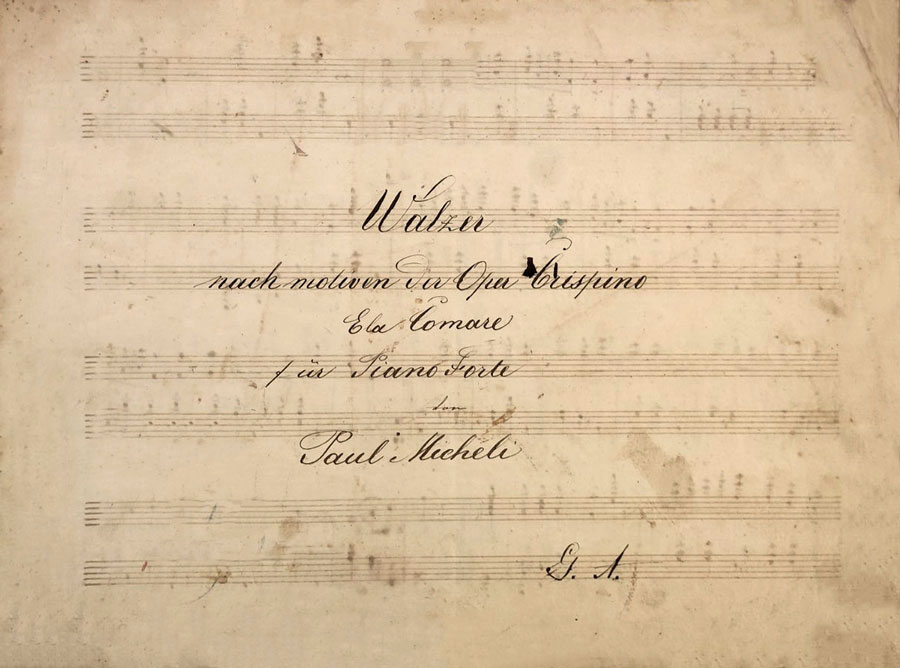
Violin Virtuoso, Orchestral director and Composer
JOSEPH BENESCH
Joseph Benesch (1795–1873) grew up in a musically stimulating environment in Bohemia and Moravia. He studied music in Vienna and in 1819 embarked on a musical journey through Italy. In 1820 he gave his first concert in Ljubljana and then performed there four more times during the Congress of Laibach. Soon after the tour, he visited Wiener Neustadt, where he met the Proch family and began teaching their son Heinrich. Benesch’s relations with the Proch family and their kinship with the important Ljubljana musician Gašpar Mašek certainly contributed to his move to Ljubljana. In August 1822 he applied to the Ljubljana authorities for permission to open a private violin school, and that same year he married Mašek’s niece, the pianist Friederika Proch (1805–1872). From 1823 to 1828 he was orchestral director of the Philharmonic Society in Ljubljana, and from 1826 he was also a violin teacher at the school there. He performed in more than ninety concerts in Ljubljana and participated as orchestral director of the Estates Theater as well as soloist and orchestral director. When the Philharmonic Society closed its music school in 1828, Benesch returned to Vienna, where he found financial security as a member of the orchestra of the prestigious Vienna Court Chapel and Court Theatre (Hofburgtheater), which he later directed. He wrote more than fifty works, mostly for violin, later also for guitar and string quartet. Among the violin works he performed as part of his personal repertoire in more than a hundred concerts, variations or “transcriptions” of well-known operas, polonaises and other highly virtuosic pieces stand out, written in a brilliant style and reflecting the spirit of Paganini’s time.
Double bass player and Composer
CARL FRANZ RAFAEL
Carl Franz Rafael (c. 1795–1864) was probably born in Žamberk, Bohemia. Some sources indicate that he studied double bass at the Prague Conservatory, but he is not documented in the alumni lists there. His first job as a double bass player was apparently in the theater orchestra in Brno, where he also performed publicly as a singer and bassist between 1814 and 1815, but he certainly changed his place of residence and work frequently. From 1816 to 1818 he was a singer in Opava, and he spent the years from 1818 to 1835 as a singer and singing teacher in Wrocław. In 1835 he moved to Brno, where he worked as a choirmaster of the theater choir, and then again as a conductor in Wrocław and Opava. With the traveling theater group of Stephan and Eugenie Mayrhofer, probably in the second half of 1842, he traveled to Maribor, where he founded a string quartet. From Maribor he traveled with the theater group to Ptuj, where he first worked as a conductor at the theater, but from 1845 he earned his living mainly as a private music teacher. He was an experienced copyist, composer, and author of at least eight surviving contrafacts preserved in Ptuj.
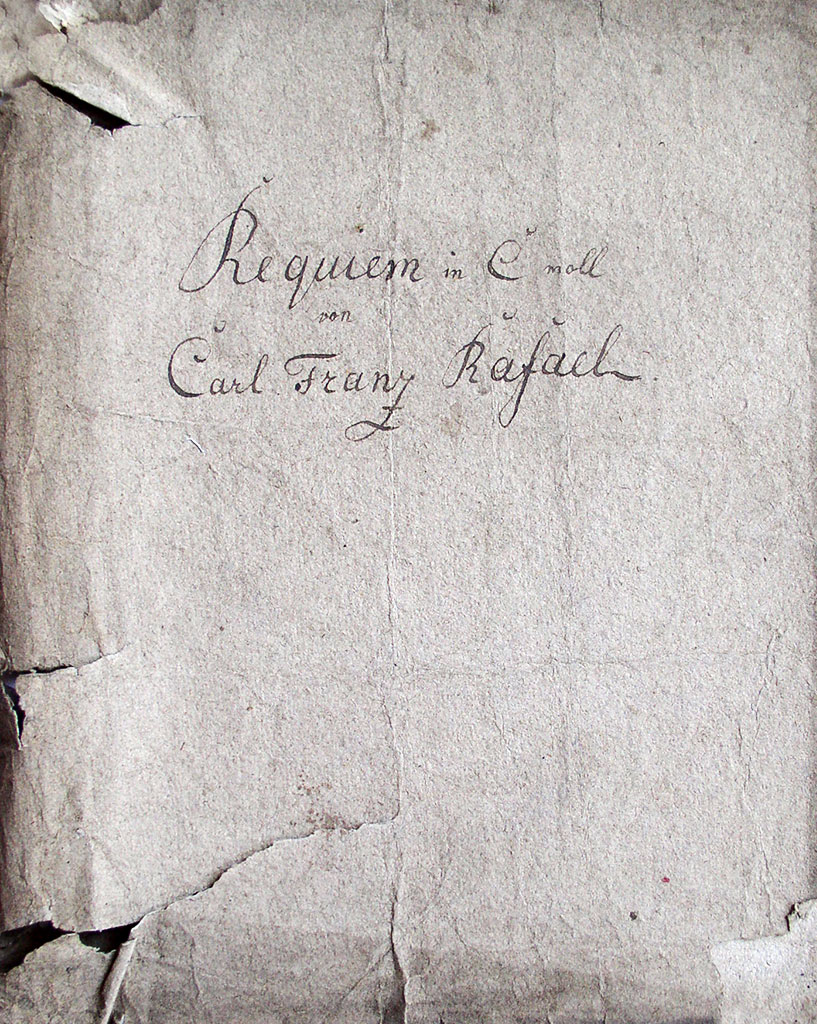
Jew’s Harp player, Guitarist and Composer
CARL HEINRICH EULENSTEIN
Karl Eulenstein was born in Heilbronn. He was interested in music at an early age and learned to play the violin. Later he developed skills with the Jew’s harp and gave several concerts, but he was not yet able make a living from his music. With letters of recommendation from Justinus Kerner, he played for Gustav Schwab, Ludwig Uhland, Wilhelm Hauff, and other personalities, who in turn recommended him to others, so that he quickly earned a good income with numerous performances for private societies and became known in the press for the first time. During his travels he learned to play guitar and speak French. In late 1825, Eulenstein arrived in Paris, where he made the acquaintance of composer and harpist Franz Stockhausen and attracted the attention of Gioachino Rossini and Ferdinando Paer, gaining access to the French royal court. Not all performances were rewarded with money, so the musician was often threatened by existential hardships. In 1826, Eulenstein traveled to England and gave a concert before the British King George IV, which received great acclaim. After a brief stay in his hometown of Heilbronn, Eulenstein returned to London in 1827, where he performed as a guitar soloist. He later moved to Bath, where he worked as a German teacher and guitar teacher between concert tours. Here he also wrote a German practice book and a grammar book. By 1830 he was considered the best Jew’s harp player of his time. Due to dental problems, he later performed only as a guitarist and worked as a music teacher. After the death of his wife in 1879, he moved and lived with his daughter (Franziska Henriette) in Celje until his death. He was also active as a composer and wrote several works for violin and other instruments. The composition Farewell (Abschied) was performed on the Celje Music Society stage in 1883.
Pianist and Composer
FRIEDERIKE BENESCH
Friederike Benesch (née Proch; 1805–1872) was born in Wiener Neustadt. She was the granddaughter of the famous composer Vincenc Mašek from Prague. Friederike received her first music lessons from her mother, Vinzenzia Mašek (1782–1849), then from the choirmaster and headmaster Anton Herzog. She continued her piano and composition studies privately in Vienna with Simon Sechter. In 1822 she met the violinist Joseph Benesch, who was a teacher of her brother Heinrich Proch. In April 1832 she married Benesch and moved with him to Ljubljana, where her uncle Gašpar Mašek was one of the leading musicians. In Ljubljana she gave private piano lessons and between 1823 and 1826 appeared seven times on the Philharmonic Society stage as both a soloist and an accompanist to her husband. She later continued her career in Vienna, composing several piano pieces.

